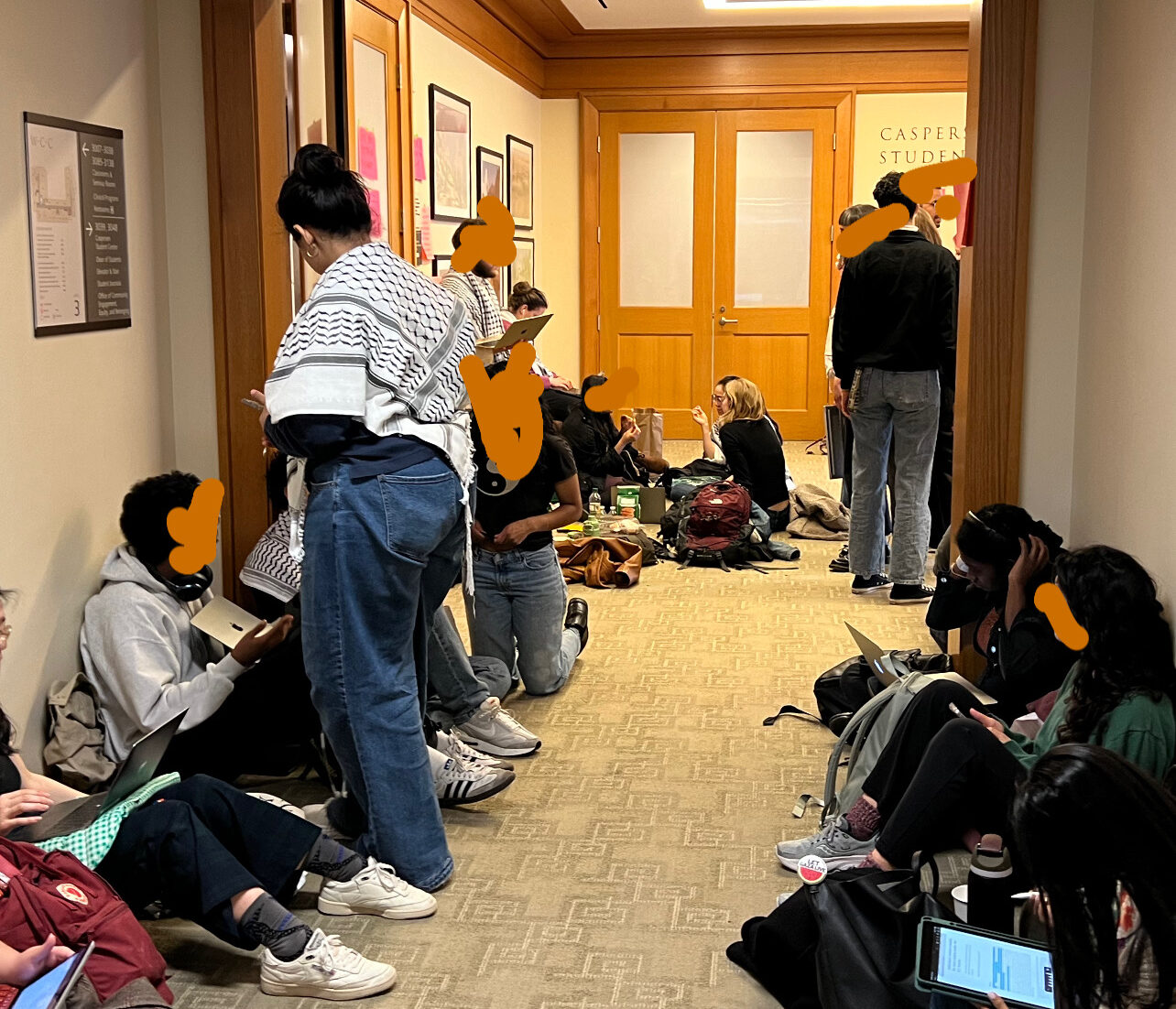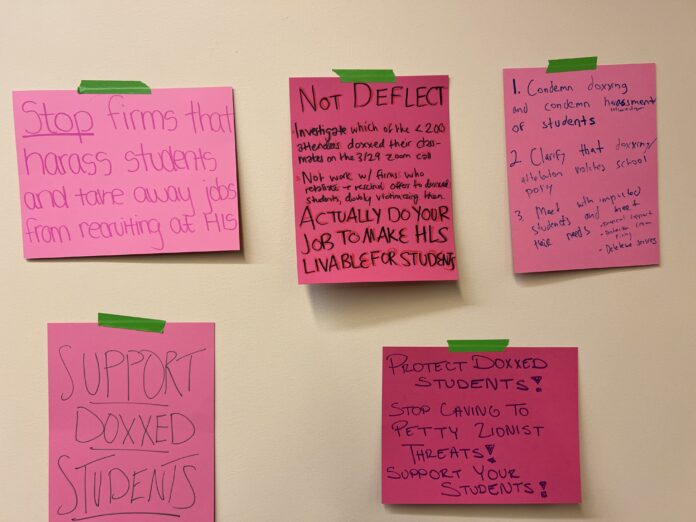Students staged a full-day sit-in at the Harvard Law School’s Dean of Students (DoS) office on Monday, starting from 9AM and concluding shortly after 5PM. The attendees camped out in protest of perceived shortcomings of the Harvard administrators in protecting students from doxxing since October.
The most recent slew of harassment came this most recent weekend following the passage of an HLS student government (SG) resolution calling on the University to divest from any institutions supporting the alleged ongoing genocide in Gaza. The resolution survived a procedural challenge last Friday, as student representatives approved the process surrounding the SG statement during an open meeting on Zoom.
On Saturday, however, it was revealed that a meeting attendee had screenshotted interactions in the chat during the Zoom call and sent them to an account with hundreds of thousands of followers on X (formerly known as Twitter).
While consideration of the resolution by secret ballot served as grounds for procedural challenge, the concerns of those who supported the course of action are to some extent validated by the transgression. Correspondence between members of the student government and university administrators had also been leaked to the press the morning of the resolution announcement.
The wrongdoing adds another chapter to the consternation surrounding doxxing on campus began subsequent to the October 7 Hamas attacks, after which Harvard’s Palestine Solidarity Committee published a letter signed by a number of student groups condemning Israel for maintaining an “apartheid regime” and holding them “entirely responsible” for the conflict.
The letter was instantly the subject of controversy, and multiple external pro-Israel organizations published lists of names and sensitive information of Harvard students affiliated with the groups that signed on— including graduates and current students who did not know their organizations had signed the letter.

Once student information became widely publicized, a number of different entities engaged in targeted harassment of Harvard personnel, including a truck circling campus with the personal information of Harvard students, a plane flying a “Harvard Hates Jews” banner, and a flurry of largely inaccurate reporting of particular Harvard students.
In addition to misinformation and harassment, many students have been targeted professionally by law firms and individual CEOs, many of them Harvard alumni.
While Harvard administration has taken some action in response to this endangerment of its personnel, namely posting an updated guide on responding to online abuse and creation of a task force on doxxing, the university has come under fire for failing to support those harmed. In particular, students have criticized the university for failing to take affirmative steps to defend those that have been attacked over the last several months.
Aashna Avachat, HLS ‘25, described the Office of Community Engagement, Equity, and Belonging (CEEB) and DoS as reluctant “to protect students who are being harassed by classmates” despite being “created after student organizing and in order to support the student body.” Avachat was one of many students who were doxxed over the weekend, her second time since October.
The DoS event was not the only expression of mass disapproval directed at HLS administrators on Monday, as students emailed the Office of Career Services (OCS), the Bernard Koteen Office of Public Interest Advising (OPIA), and multiple administrators seeking removal of their names “from the Who Worked Where spreadsheets and all other internal Harvard career lists” as consequence of the weekend’s doxxing affair.
OPIA received so many messages that they issued a mass email statement announcing that the “Who Worked Where” spreadsheet was no longer accessible. The message also noted that they had received “a high volume of inquiries” and invited students to reach out if they had further concerns.
“This is bigger than just a free speech issue” remarked Avachat, describing the doxxing as “a campaign to distract from Palestine and Palestinian freedom.”
Harvard Law’s Affinity Group Council has also taken steps to develop a notes bank to support fellow students who may not feel comfortable attending class or coming to campus due to the disclosure of their personal information. They have made this link public for access to the bank and public submission of notes, this form to allow request for any notes not listed in the folder, and are accepting anonymous submissions of notes at bphillips@jd24.law.harvard.edu with the subject line “AGC NOTES BANK SUBMISSION.” They request that the attachments are titled in the format “CourseName_ProfessorName.”


